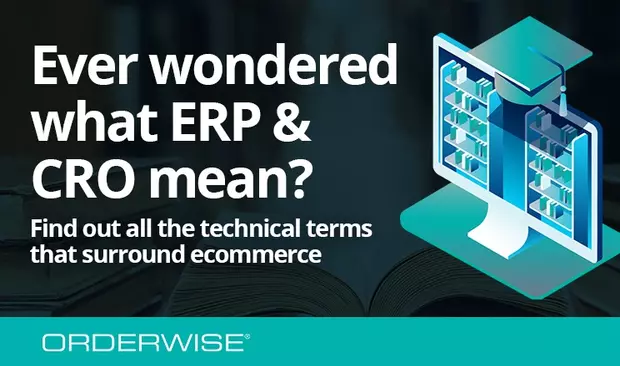Decoding ecommerce acronyms

Make sense of the bemusing world of online retail’s TLAs – three-letter acronyms
The business world and the technology sector are probably the second and third-worst offenders for impenetrable acronyms (only just beaten out by the world’s militaries). So when the business and technology worlds come together in the form of ecommerce, a swarm of TLA/3LAs is bound to burst forth (three-letter acronyms).
To help anyone either newly entering the sector, or those who might like to brush up a little on their background reading, here’s a collection of some of the more important examples
- 3PL – Third Party Logistics – When an ecommerce company hires an outside company to do aspects of logistics, such as warehouses, delivery, supply chain management, and so on.
- AOV – Average Order Value – The average value of an individual order.
- API – Application Programming Interface – The means by which a piece of software controls and displays to the user the different ways that different programmes can interact.
- BPA – Business Process Automation – A system that can make a specific string of actions happen in a business with either minimal or no direct manual involvement.
- CMS – Content Management System – The back end of your website. The software system that you use to control and coordinate all of the content on your website, from blogs to business listings.
- CPC – Cost per Click – The expense per individual user click on a particular link in a particular place.
- CPI – Cost Per Impression – How expensive it is for every time a person views the entire webpage.
- CRO – Conversion Rate Optimisation – The condition and calibrating of the design of your website that is engineered to turn visitors into customers.
- CTA/C2A – Call To Action – The statement that asks the reader to do something. This can vary from making a purchase to downloading a white paper, making an inquiry, or filling in an online form
- CTR – Click Through Rate – A ratio measurement to count the number of total users who view a specific page or email or other material, and then subsequently click on the desired link. CTR is calculated often as a percentage, that is worked out by dividing the number of click-throughs by the number of page impressions, and then multiplying that by 100.
- DNS – Domain Name System – The internet protocol that organises and confirms the name of your website.
- DTP/D2P – Days To Purchase – The number of days between when a customer first visits your site, and when they make their first purchase.
- ERP – Enterprise Resource Planning – A type of software to help you control and coordinate all your ecommerce business actions, as well as the actions of your business more broadly.
- OPM – Outsourced Programme Management – Another way to say ‘affiliate’
- PPC – Pay Per Click – A type of online advertising where you pay by bidding for the positioning of your specific link, and you pay based on every time there is a click on the link.
- SEO – Search Engine Optimisation – The process of arranging your content to best suit what search engines like Google and Bing are looking for. You can arrange your SEO to be location focused, or targeted at specific terms and phrases
- SEM – Search Engine Marketing – Organising your material on your website so that the material detected by search engines is well suited for advertising your business.
- SERP – Search Engine Results Page – The list of results a search engine turns up after looking for a particular set of terms. Your ranking on this page will be an important metric based on particular terms that matter to your business.
- RFI – Request For Information – A button you may put on your page somewhere to allow customers to ask more about a specific product or aspect of your business.
- VTP/V2P – Visits To Purchase – The number of times a customer visits your site before they make a purchase.
- WMS – Warehouse Management System – Software that can help you control and direct the operations of your warehouse or other storage space.
Handling all these, and many more besides, will enable you to speak the language necessary to make the most of your ecommerce space. To learn how to integrate your marketplace operations to save you time, effort, and money, speak to one of the OrderWise customer success managers today.